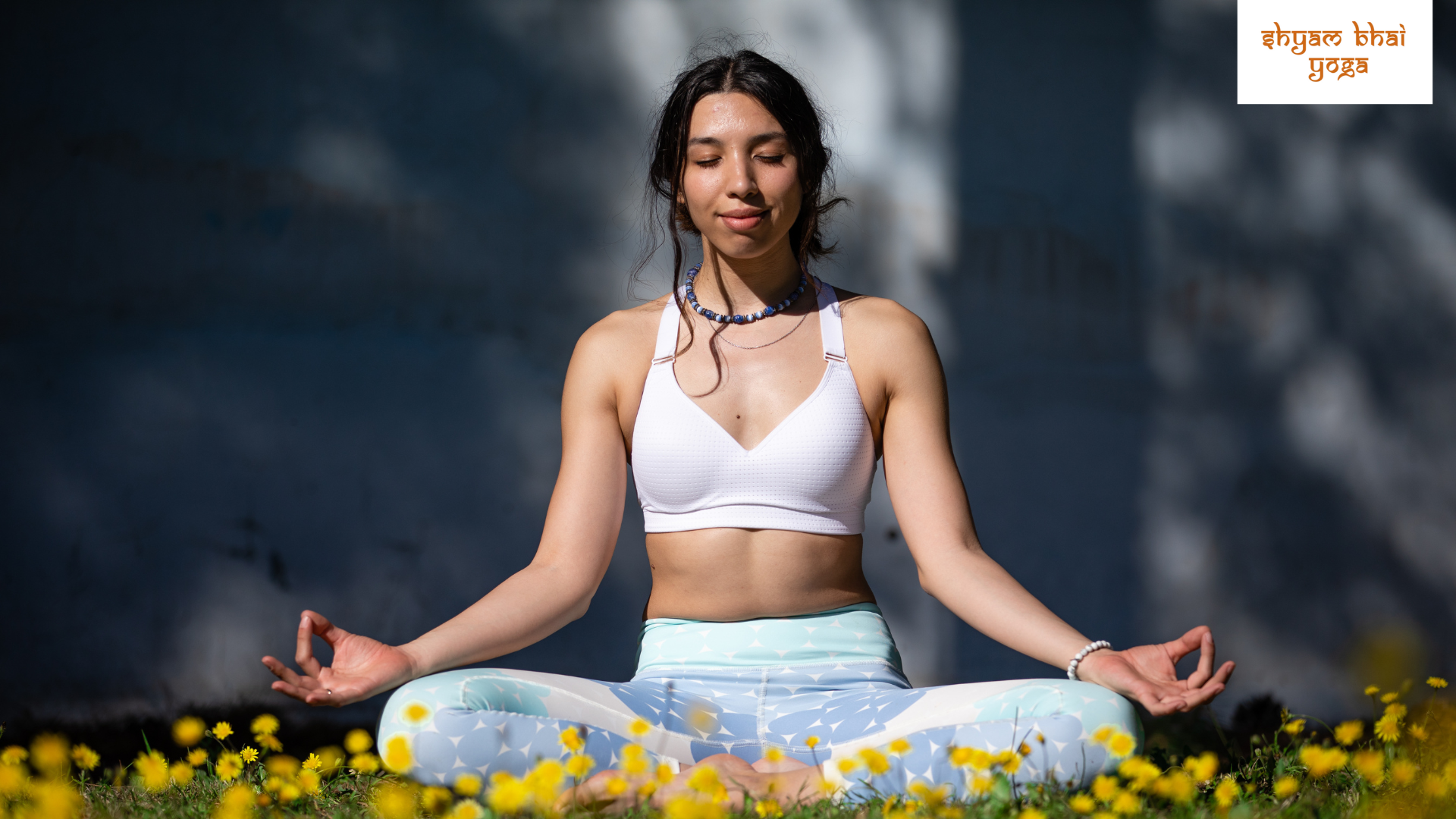
Yoga, an ancient practice with roots in India, has become a global phenomenon, embraced for its physical, mental, and spiritual benefits. At its core, yoga is not just about the postures (asanas) but also includes breath control (pranayama), ethical guidelines (yamas and niyamas), and most importantly, meditation (dhyana). Meditation plays a pivotal role in yoga, acting as a bridge to deeper awareness and inner peace. Did you know? 80% of the most successful people in the world meditate. Let’s explore the role of meditation in yoga, along with some techniques and tips to help you get started on this transformative journey.
Understanding the Connection Between Yoga and Meditation
Yoga is often associated with the physical practice of asanas, which are designed to prepare the body for meditation. The ancient yogis believed that a flexible and strong body is less likely to be a distraction during meditation. Hence, yoga asanas serve the dual purpose of maintaining physical health and creating a conducive environment for meditation.
Meditation, on the other hand, is the practice of focusing the mind and eliminating distractions to achieve a state of deep concentration and tranquility. It is through meditation that one can experience the true essence of yoga—unity of the mind, body, and spirit. In essence, meditation is the heart of yoga, where the practitioner moves beyond the physical to explore the inner landscapes of the mind and soul.
Benefits of Meditation in Yoga
- Enhanced Mental Clarity and Focus: Regular meditation helps in clearing the mind of unnecessary clutter, leading to improved concentration and mental clarity. This is especially beneficial in our fast-paced world where distractions are rampant.
- Stress Reduction: Meditation activates the parasympathetic nervous system, which is responsible for the body’s rest and digest response. Online yoga classes for stress relief leads to reduced stress levels and a calmer state of mind.
- Emotional Balance: By observing thoughts and emotions without judgment, meditation helps in cultivating emotional stability. It allows practitioners to respond to situations with equanimity rather than reacting impulsively.
- Spiritual Growth: Meditation is a path to self-discovery and spiritual awakening. It helps in understanding the deeper aspects of life and our connection with the universe.
- Improved Physical Health: The calming effects of meditation can lead to lower blood pressure, improved immune function, and better sleep, contributing to overall physical well-being.
Techniques of Meditation in Yoga
There are numerous meditation techniques in yoga, each with its unique approach to achieving mindfulness and inner peace. Here are some popular methods:
- Mindfulness Meditation (Vipassana): This technique involves focusing on the breath and observing thoughts and sensations without attachment. It helps in developing a heightened sense of awareness and presence.
- Mantra Meditation: In this practice, a specific word or phrase (mantra) is repeated silently or aloud. The repetition of the mantra helps in concentrating the mind and blocking out distractions. Common mantras include “Om” or “So Hum”.
- Loving-Kindness Meditation (Metta): This technique focuses on cultivating feelings of love and compassion towards oneself and others. It involves silently repeating phrases like “May I be happy, may I be healthy, may I be at peace,” and extending these wishes to others.
- Guided Meditation: This involves following the instructions of a teacher or a recorded guide who leads you through the meditation process. It’s a great option for beginners who need direction.
- Chakra Meditation: This method focuses on the seven energy centers (chakras) in the body. By visualizing and concentrating on each chakra, practitioners aim to balance and harmonize their energy flow.
- Transcendental Meditation (TM): TM involves sitting quietly and mentally repeating a specific mantra. The practice is typically done twice a day for 20 minutes. It’s known for its simplicity and effectiveness in reducing stress.
Tips for Effective Meditation Practice
- Create a Dedicated Space: Choose a quiet and comfortable space where you can meditate without interruptions. This helps in creating a serene environment that’s conducive to meditation.
- Set a Regular Schedule: Consistency is key. Try to meditate at the same time every day, whether it’s in the morning, afternoon, or evening. This helps in building a routine and making meditation a habit.
- Start Small: If you’re new to meditation, start with short sessions of 5-10 minutes and gradually increase the duration as you become more comfortable with the practice.
- Use Comfortable Posture: Sit in a comfortable position with your spine straight. You can sit on a chair, cushion, or yoga mat. The goal is to find a posture that allows you to stay relaxed yet alert.
- Focus on Your Breath: Your breath is a powerful anchor for meditation. Pay attention to the natural rhythm of your breathing. This helps in grounding your mind and bringing it back whenever it starts to wander.
- Be Patient and Kind: Meditation is a practice that takes time and patience. Be kind to yourself, and don’t get frustrated if your mind wanders. Gently bring your focus back to your breath or mantra.
- Incorporate Movement: Sometimes, sitting still can be challenging. Incorporating gentle yoga asanas or walking meditation can help in preparing your body and mind for stillness.
- Seek Guidance: If you’re struggling with meditation, consider joining a meditation group or taking classes from a qualified teacher. They can provide valuable insights and support.
- Reflect on Your Practice: After each meditation session, take a few moments to reflect on your experience. Notice any changes in your thoughts, emotions, or physical sensations. This reflection can help in deepening your practice.
- Stay Open and Curious: Meditation is a journey of self-discovery. Stay open to the experience without any specific expectations. Each session is unique, and over time, you’ll notice subtle changes in your awareness and perspective.
Explore our blog, ‘What Are The Effects Of Yoga On Mental Health?‘, to find out how yoga and meditation improves overall well-being.
Integrating Meditation into Your Yoga Practice
To fully integrate meditation into your yoga practice, consider these approaches:
- Begin with Breath Awareness: Start your yoga session with a few minutes of breath awareness. Sit quietly and observe your breathing. This helps in centering your mind and preparing it for the practice ahead.
- Incorporate Mindful Movement: Attend your online yoga classes, practice your yoga asanas mindfully, paying close attention to your breath and body sensations. This transforms your physical practice into a moving meditation.
- End with Savasana and Meditation: Conclude your yoga practice with Savasana (Corpse Pose), followed by a short meditation. This helps in absorbing the benefits of the practice and transitioning into a state of deep relaxation.
- Use Mantras During Asanas: Integrate mantra repetition into your asana practice. For example, you can silently repeat “Om” with each breath or movement, enhancing your focus and inner connection.
- Practice Pranayama: Incorporate pranayama (breath control) techniques before meditation. Practices like Nadi Shodhana (Alternate Nostril Breathing) or Kapalabhati (Skull Shining Breath) help in calming the mind and preparing it for deeper meditation.
- Attend Meditation Workshops and Retreats: Participate in workshops or retreats focused on meditation. These immersive experiences provide an opportunity to deepen your practice and learn from experienced teachers.
Conclusion
Meditation is an integral part of yoga, offering a pathway to mental clarity, emotional balance, spiritual growth, and overall well-being. By incorporating meditation techniques into your yoga practice, you can deepen your connection with yourself and experience the true essence of yoga. Whether you’re a beginner or an experienced practitioner, meditation has the potential to transform your life, bringing peace, joy, and a sense of unity. Embrace the journey with an open heart and mind, and let the practice of meditation guide you towards a more mindful and fulfilling life.
Inquiry
If you have any questions, please feel free to reach out. We’ll be glad to help!
